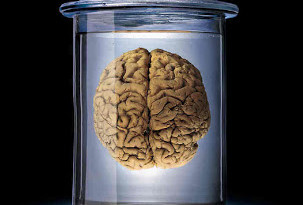 Is there such thing as a Biblical epistemology (theory of knowledge)? Well, there’s no one definitive Biblical theory of knowledge that Christians would all agree on – but getting Christians to all agree on anything is very difficult, to put it mildly!
Is there such thing as a Biblical epistemology (theory of knowledge)? Well, there’s no one definitive Biblical theory of knowledge that Christians would all agree on – but getting Christians to all agree on anything is very difficult, to put it mildly!
But I think that what the Bible teaches about God, the world, reality and so on, does have implications for epistemology (the philosophical study of how we know stuff). At a minimum, I think Christians are obligated to believe that there is such a thing as truth and it is knowable, otherwise the Bible’s truth claims become meaningless.
But I think our theology can help us a lot more in thinking about the nature of truth and knowledge. If God as the foundation for all reality, then the nature of God determines the nature of truth and knowledge.
Since God is trinity, I believe this implies that there often isn’t one single right way of looking at things. There are usually multiple, complementary perspectives. That doesn’t mean that totally contradictory things can both be true – we’re talking variations on the same theme rather than black being white. That we have four Gospel accounts, each with their own perspective and slant, also suggests this. Diversity in how we understand and express truth is, within reasonable limits, legitimate and valuable, and reflects the unity in diversity of God himself.
At the same time, because Father, Son and Holy Spirit are one, then in the correspondence between the persons of the trinity, I believe we have a basis for correspondence theory of truth as a legitimately Christian. Reality and truth are in a sense patterned after the relations between Father, Son and Spirit.
Another philosophical implication of what the Bible reveals about God is that he is personal, and so all of reality has a personal dimension. The idea of the knower as a neutral, detached observer is, I’d suggest, foreign to Biblical thought – we aren’t brains in a jar. God does not have a detached, impersonal knowledge of everything, but a loving, passionately committed knowledge. Knowledge yields itself most readily when we commit ourselves to its pursuit in faith and love.
This is all very speculative and off the top of my head, rather than a developed argument, but I think it’s an interesting topic to be thinking about.

